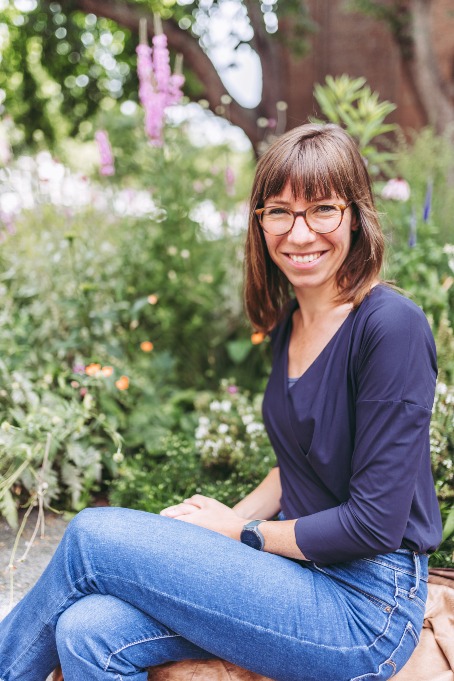Impact Officer Sarah Willemsen: 'Real impact takes time and effort'

Impact is becoming increasingly important within the academic world. But what exactly does it mean and what does it entail for the UG? In this series, staff members talk about their way of supporting academics in making impact. In the first episode, Sarah Willemsen, Impact Officer at the Faculty of Arts, shares her story. ‘During the research process, academics often suddenly see the light.’
Text: Jelle Posthuma
Initiating change is, according to Willemsen, what making an impact is all about. Academics do this in the areas of knowledge, attitude, and behaviour, says the Impact Officer, mentioning as an example the research of Martijn Wieling, Professor by special appointment of Lower Saxon and Groningen Language and Culture. ‘A dialect game was developed as a result of his group’s research. This game playfully demonstrates the wealth of dialects in the Netherlands, and ultimately contributes to the renewed appreciation of dialects. Impact is about changing the way we, as a society, look at a concept.’
Impact ladder
Making impact can be done in several ways, Willemsen continues. She uses a ladder to illustrate this. On the first rung, academics are mainly busy sending a message, for example through an exhibition, podcast, or brochure about their research. The higher up the ladder, the more exchange takes place between academia and society. ‘We call this process co-creation, which is all about the collaboration between researchers and stakeholders from society. A question is answered from an academic point of view, but also from society’s.’
Willemsen points to Marcel Broersma, Professor of Journalistic Culture and Media, who actively involves partners from society in his research on digital literacy. The Impact Officer also mentions the work of Ann-Sophie Lehmann, Professor of Modern and Contemporary Art. She lets medical students and medical professionals look at works of art in order to enhance their visual skills. As a result, they are better able to analyse medical images, such as ultrasounds.
Another example concerns neurolinguists, who develop language tests at the Faculty of Arts. These language tests are held during brain surgery, which can prevent or reduce language loss in patients. ‘This is a very direct way of impacting people’s lives, but at the Faculty of Arts the forms of impact are very diverse.’
Citizen science
Another example of making an impact is a large-scale project by archaeologist and associate professor Hans Peeters, says Willemsen. The research focuses on Doggerland, a large stretch of land in the North Sea that disappeared into the sea thousands of years ago due to rising sea levels. The vast area was home to people and animals, who left behind artefacts and bone material. These objects are picked up on the beach by volunteers, or rather collectors—this title does more justice to their skill, according to the researchers.
It is a form of citizen science, Willemsen explains. ‘The finds provide a huge amount of data, which enables researchers to say something about the larger patterns and developments. The researchers have set up Antiques Roadshow type meetings for this purpose, where collectors have their artefacts and other objects assessed by researchers. This creates a special interaction, but in addition, it also contributes to the creation of heritage policies for seas. For instance, which sites are suitable and which are not? These finds reveal the value of our seabeds.’
Challenge for the Arts Faculty
Her work as Impact Officer for the Faculty of Arts revolves around advising and mentoring, says Willemsen. She also contributes to the Faculty’s research and impact strategy and works on public programmes, such as the Arts Festival. According to her, it is sometimes quite challenging for the humanities to demonstrate its societal relevance. ‘Research conducted within the humanities is not always the recipe for ‘world peace’ or ‘the cure for cancer’, but it is definitely relevant. We just need to find the right way to get the impact across.’
First of all, Willemsen stresses the important role of education. ‘Our alumni have a direct impact on society: they often hold key positions in society.’ The research that takes place at the Faculty of Arts is particularly suited to provide society with different perspectives, she continues. ‘We offer context to society, allowing informed decisions to be made.’
Guidance
To highlight this relevance, Willemsen advises researchers when they are drafting their applications for research funding. ‘Research funders are increasingly explicitly asking for the societal relevance of research, but not all our researchers are ‘impact literate’.’ During the guidance process, Willemsen tries to trigger a train of thought. ‘Researchers are trained to write papers. Some of them are not yet used to looking outside the academic world to find partners. There is a lot to be gained by making them aware.’
Willemsen supports researchers in identifying potential stakeholders and helps them choose a medium and format. ‘It is important for researchers to choose an impact form that suits them best. I notice that researchers are sometimes reluctant to give shape to the impact of their project, but often, during the train of thought they suddenly see the light. Making an impact is not a must; it enriches your research and, on top of that, serves as inspiration. I hope our researchers will experience that.’
Ice cream sundae
Whether research has impact is not always predictable, Willemsen acknowledges. ‘It often occurs suddenly, during the research. You also see that research funders respond to this, for example with the Dutch Research Council’s Impact Explorer grant.’ According to Willemsen, there is no point, therefore, in measuring impact quantitatively. ‘We should not do it just to keep score and show our accountability to society. Real impact takes time and effort. I often compare it to an ice cream sundae. Impact is not the cherry on top, but the sauce stirred through the entire scientific sundae.’
More news
-
15 September 2025
Successful visit to the UG by Rector of Institut Teknologi Bandung
